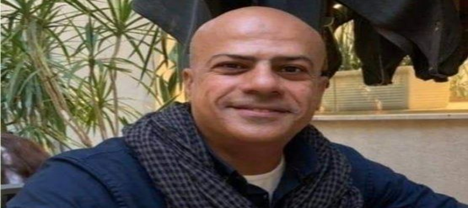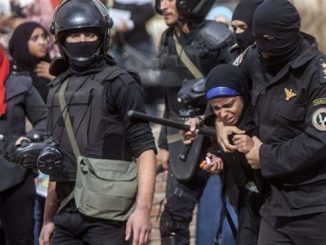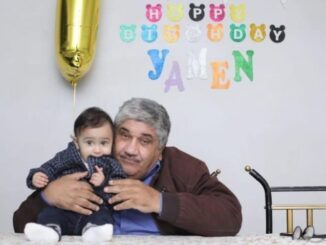
A Cairo court has upheld prosecutors’ decision to close the investigation into economic researcher Ayman Hadhoud’s suspicious death in a psychiatric hospital
The Egyptian court on Thursday upheld prosecutors’ decision to close the investigation into economic researcher Ayman Hadhoud’s suspicious death in a psychiatric hospital, despite multiple questions remaining unanswered.
Numerous questions remain over Hadhoud’s death in April, including why his body was held for weeks before authorities finally informed his family of his passing.
The U.S. State Department has previously said it is “deeply disturbed” over Hadhoud’s enforced disappearance and death and called for a thorough investigation.
Rights organizations have also continued to push for an independent investigation.
Yet the court accepted the Public Prosecution’s argument that there was no reason to file a criminal complaint over Hadhoud’s case, and it also rejected a civil suit by Hadhoud’s family against the hospital and others implicated in his death.
The family plans to appeal to the Court of Cassation, Egypt’s highest court.
Activist Alaa Abdel Fattah was allowed out of his cell (for around 30 minutes) and was finally able to spend time outdoors yesterday for the first time since 2019.
The change, despite representing a welcome improvement in Abdel Fattah’s conditions, still falls well short of both international standards and Egyptian law.
Human rights organization Belady recently called attention to authorities’ practice of denying prisoners access to natural light or exercise, both of which Abdel Fattah and countless other prisoners continue to suffer from.
Meanwhile, lawyer Mohamed El-Baqer has spent one thousand days of arbitrary detention. El-Baqer, who was arrested while representing Abdel Fattah and then convicted alongside him in December, as well as three years in detention for Hisham Fouad.
Fouad, as well as fellow journalist Hossam Moanis and former parliamentarian Ziad el-Elaimy, received lengthy, unappealable prison sentences in an emergency court last November.
The Egyptian Commission for Rights and Freedoms has issued a new report documenting the many flaws in their trial.
Moanis received a pardon last April, but the other two remain unjustly behind bars.
The Human Rights Committee in Egypt’s House of Representatives held a meeting with media representatives on June 21 about improving the country’s human rights image worldwide, but the participants pointed to an ironic problem: the difficulties they face in reporting thanks to the government’s own media restrictions.
Last month, the committee’s chairperson, Tarek Radwan, was grilled on the government’s human rights record during an appearance before the European Parliament’s Subcommittee on Human Rights.
As a result of this and similar incidents, committee members complained in the meeting about “the promotion of false information and exaggerations in human rights reports, social media, and channels that operate outside Egypt.”
They also accused Egypt’s press of presenting an unfair image of the government’s rights record.
The editors-in-chief present, however, said their papers have trouble reporting events accurately due to the many obstacles faced by Egypt’s journalists, including the lack of information released by state authorities and the poor financial situation of the country’s media.
One editor of a state-aligned website noted that the media’s inability to cover important stories thanks to government silence has led to unreliable sources gaining prominence, and he asked how they can hope to influence the press abroad when the domestic press already has little influence at home.



